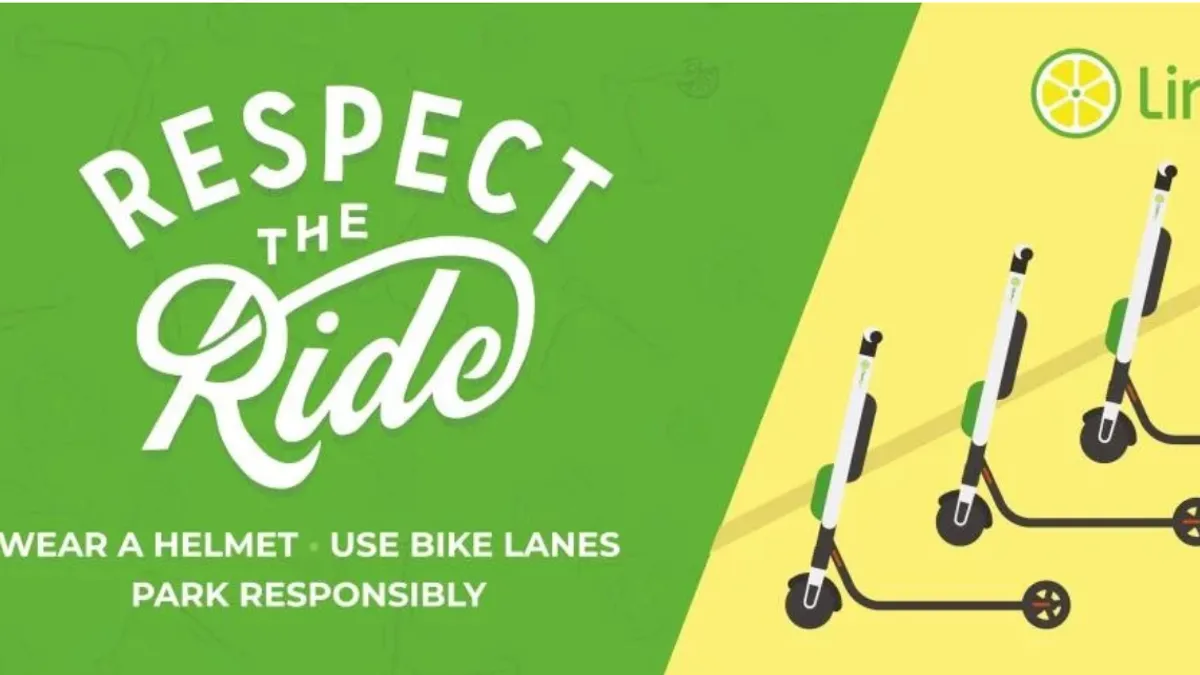Dive Brief:
- Lime has launched a $3 million educational campaign, Respect the Ride, to promote responsible use of the company's dockless bikes and e-scooters.
- Through the campaign, riders are asked to sign a pledge committing to safe operating practices including obeying traffic laws, wearing a helmet, parking devices properly and being aware of other riders, pedestrians and automobiles.
- The first 25,000 people to sign the pledge will get a free helmet.
Dive Insight:
Dockless scooter safety concerns have usurped many of the public's and municipalities' previous concerns about dockless clutter from customers improperly parking devices. Lime's user pledge aims to address both.
Mobility companies like Lime push hard for customers to exhibit safe riding practices, such as helmet use. The new rider pledge furthers that commitment, and seals the deal with the helmet giveaway.
Lime is not alone in these efforts. A Bird spokesperson told Smart Cities Dive last month: "We strongly encourage all riders to wear helmets. To help ensure people have equal access to helmets, we provide them to riders for free. To date, as a result of our helmet program, we have given away more than 50,000 free helmets."
E-scooters are a newer concept for which municipalities are still trying to figure out governance. Currently, e-scooter helmet laws often are lumped in with bicyclist helmet laws. Most cities do not have their own helmet rules and instead defer to state helmet laws. The vast majority of states do not require that adult riders wear helmets; about half have helmet laws for cyclists who are minors.
Overall, this rider pledge will likely be a welcomed initiative, considering the e-scooter industry as a whole has faced criticism for releasing devices with little advance education. Critics point to increases in e-scooter related injuries and even deaths, such as when a scooter rider fatally collided with an SUV in Washington, DC in September. Taking a more visible approach to safety could help boost mobility companies' view in the public eye at a time when some believe consumer confidence could be wavering.












